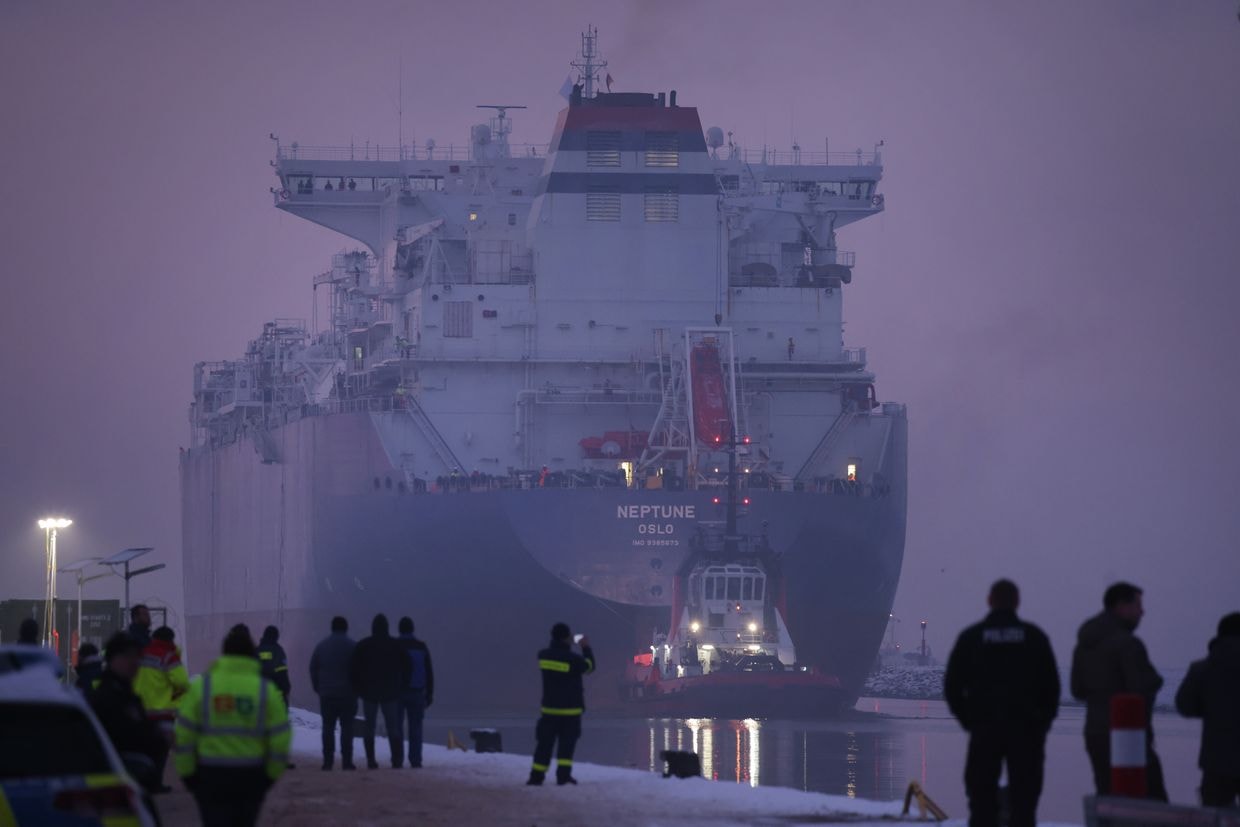Russia’s proxies declare mobilization amid heightened tensions in Donbas

Denis Pushilin, leader of the Kremlin’s proxies in Donetsk Oblast, and Leonid Pasechnik, leader of the proxies in Luhansk Oblast ordered the mobilization of men 18-55 years old in Russian-occupied territories on Feb. 19, amid escalation in the region.
Men of that age are banned from leaving the occupied territories, while other civilians were asked to evacuate to Russia. Most locals are staying put, according to the people in the occupied territories who spoke to the Kyiv Independent.
The mobilization order comes at the end of an extremely tense week in Ukraine, marked by the anticipation of a possible Russian invasion.
Read also: Biden warns that Putin decided to invade Ukraine 'in coming days'
While Russia hasn't moved its 150,000 troops into Ukraine as some expected it to do this week, an escalation instead started in the Russia-controlled parts of eastern Ukraine.
For the past two days, Russian-backed militants have been shelling Ukrainian villages and positions of the Ukrainian forces near the front line in eastern Ukraine.
The shelling continued on the morning of Feb. 19, killing one Ukrainian soldier.
Anton Sydorov, 34, chief reconnaissance officer at his unit, was killed by shrapnel at around 7 a.m. on Feb. 19. As of 9 a.m., the militants shot at the Ukrainians' positions 19 times, including with weapons prohibited by the Minsk Agreements, according to Ukraine.
At the same time, Russia and the leadership of the Russia-occupied territories in eastern Ukraine Russia-backed militants have seemingly been trying to frame Kyiv for the escalation.
The Russian state media have been claiming, without evidence, that the Ukrainian forces were shelling the occupied territories, not vice versa. They reported that a gas pipeline was set on fire in Luhansk Oblast, blaming Ukraine for it.
Meanwhile, the Gas Transmission System Operator of Ukraine (GTSO) said on Twitter on Feb. 19 that the gas infrastructure on the occupied territories where the explosion allegedly took place is disconnected from the Ukrainian gas pipeline system, no does it carry the transit gas from Russia through Ukraine.
Russian-led militants had begun evacuating civilians to Russia on Feb. 18, but the evacuation reportedly stumbled.
Most locals, although unnerved by the recommendation, are staying in their homes, according to the contacts of the Kyiv Independent in the occupied territories.
Some are staying because they distrust the authorities, others don't have the means to support themselves during the evacuation. Russian authorities said they would pay $130 in benefits to the evacuees.
Some families aren't evacuating because they don't want to leave their men, who are barred from leaving.
As of the evening of Feb. 18, the Russia-led proxies claimed that they have evacuated 3,400 people and sought to move out 500,000-700,000 people into Russia’s neighboring Rostov region. The state of emergency was introduced in the Rostov region.
It added to the confusion when journalists discovered that the video addresses of the Kremlin-installed leaders of Luhansk and Donetsk calling for evacuation were recorded on Feb. 16, two days before the evacuation order, when there was no escalation yet. The dated video files were uploaded to the separatist leaders' Telegram channels.
Meanwhile, President Volodymyr Zelensky is scheduled to attend the Munich Security Conference on Feb. 19. He will return to Kyiv later the same day, according to the President’s Office. He is due to meet U.S. Vice President Kamala Harris on the sidelines of the conference.
In Europe, France is still trying to push for diplomacy. The Kremlin has confirmed that Russia’s President Vladimir Putin and French President Emmanuel Macron will speak on the phone on Feb. 20.
In Russia, the Russian parliament's upper and lower house will both convene meetings on the same day, Feb. 22. Russian media suggest the parliament can once again vote to recognize the Russia-occupied areas of eastern Ukraine as independent states. In 2014, the upper house, the Federal Assembly, authorized the Russian military to move into Ukraine. The authorization was active until December 2021.










